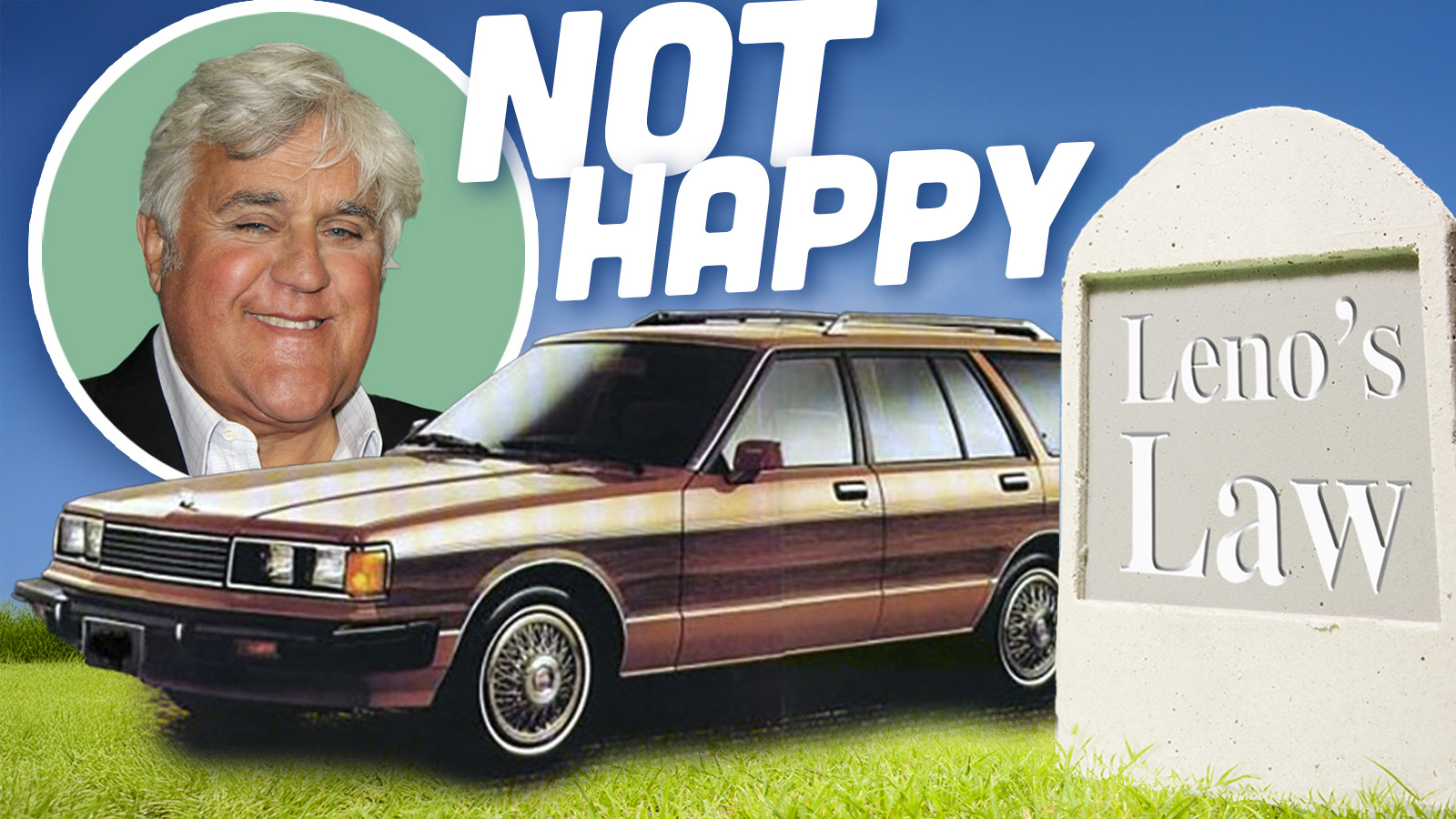California is the car capital of the world. Perfect year-round weather and some truly spectacular roads mean enthusiasts flock in droves. But the Golden State is also regulatory hell on earth for classic car owners. Smog laws require all road-going vehicles built after 1976 to pass strict emissions tests, which can be overly costly and time-consuming, as our own David Tracy has dealt with firsthand. Senate Bill 712, also known as “Leno’s Law,” was supposed to fix that. Except it won’t. Because it’s dead.
The bill, which would’ve eliminated Smog checks for vehicles 35 years or older, died in California’s Assembly Appropriations Committee, a group of 11 assembly members that vote on whether bills reach the State’s full assembly for a vote. The news comes just four months after the proposal passed California’s Senate Transportation Committee with bipartisan support.
State Senator Shannon Grove, a republican representing Bakersfield who authored the bill, was understandably disheartened by the law’s failure to reach the assembly. From her website:
I am deeply disappointed that once again, the California state legislature did not prioritize California’s Classic car culture and the enthusiasts who were relying on this measure to pass. Leno’s Law would have simply allowed for a few additional classic car model years to receive a full smog exemption—a much-needed update on an antiquated law. Sadly, today California said no to helping preserve these rolling pieces of history and let down classic car clubs across the state from low riders, to hot rods and every American classic in between. Leno’s Law was not just about the cars, it was about the enthusiasts behind the wheel.
News of the bill’s demise came even as lawmakers sought to water down its effectiveness in an effort to keep it alive. They slapped on an amendment in June requiring vehicles to be registered with historic plates, and later, narrowed qualifying cars to those built between 1981 and 1986. But those efforts proved futile.
Senate Bill 712 had tons of support from the car community and beyond, not only from Jay Leno himself, but also from the Specialty Equipment Market Association (SEMA), which sought to have the law passed as a “practical solution for collector vehicle owners, allowing them to enjoy their passion without the burden of unnecessary regulations,” according to CEO Mike Spagnola. But health and climate change activists opposed its passing. Will Barrett, assistant vice president of the American Lung Association, told The Mercury News his organization was happy the bill died in the committee.
We’re pleased it’s not moving forward. From a public health perspective, this is a good outcome. It represented a step back from clean air protections. One of the things we really need to be on guard for is these bills that weaken the existing tools we have.
It’s true that Leno’s Law would’ve ultimately allowed more emissions into the atmosphere. The state’s Bureau of Automotive Repair told The Mercury News it expected to receive 17,500 requests every year for smog check exemptions had the bill passed. But the environmental impact would’ve likely been negligible. As my colleague Thomas Hundal pointed out back in March, the vehicles qualifying for an exemption are antiques registered as collector cars, which usually come with specific insurance that restricts usage and mileage. So it’s not like the law would be opening up a swath of highly polluting vehicles to everyday commuter use.
Alas, none of that matters anymore. With Leno’s Law dead, Californians will continue to suffer under the thumb of the State’s Smog Check laws for the foreseeable future. And with the State cracking down on out-of-state registrations—including well-known methods through Montana—vintage car owners have little to no recourse.
Top graphic images: depositphotos.com









Oh, for fucks sake!
If I were in Leno’s position, I would open a chain of classic car testing centers, or even a mobile outfit that comes to you if that is technically feasible. It could be made to be a non profit to keep the prices affordable.